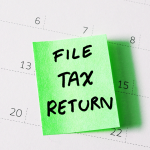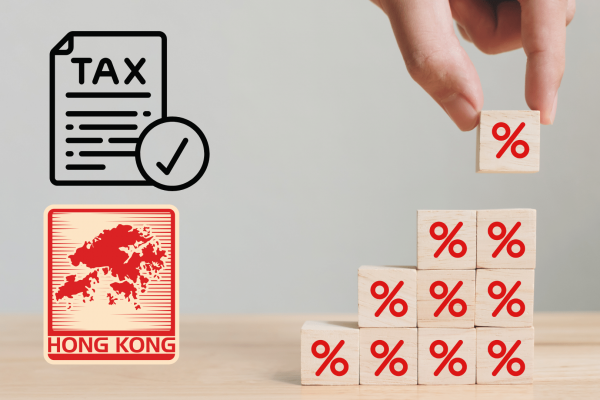2025 Tax Filing Season in Hong Kong is Here
As the 2025 tax filing season begins, it’s essential for individuals and businesses operating in Hong Kong to stay informed and well-prepared.
The fiscal year in Hong Kong runs from 1 April to 31 March, but tax filing deadlines depend on your specific circumstances, such as whether you’re an employer, business owner, or individual taxpayer.
Whether you’re filing for the first time or you’ve been doing business in Hong Kong for years, understanding the process, deadlines, and compliance requirements can save you time and help reduce your overall tax burden.
This guide walks you through what needs to be filed, when, and how, along with practical tips on extensions, recordkeeping, and tax planning.
What Types of Tax Returns Need to be Filed and When?
In generally, the IRD issues the following tax returns to taxpayers and the usual filing deadlines are one month from the issue date:
| Tax return | Matters to report | Issue date | Filing time |
| Employer’s Return (Forms BIR56A and IR56B) | Remuneration paid by employers to their director/employee | ||
| Early April | Early May | ||
| Profits Tax Return (Form BIR51) | Profits from partnership and corporate businesses | ||
| Financial year end on any day between April 2024 and November 2024 | Early April | Early May | |
| Financial year end on any day in December 2024 | Mid-August | ||
| Financial year end on any day between January 2025 and March 2025 | Mid-November* | ||
| Individual Tax Return (Form BIR60) | Employment income, director’s fee, pension income, rental income from solely owned properties and profits from sole proprietorship business | ||
| Taxpayer without sole proprietorship | Early May (2 May 2025) | Early June(2 June 2025)(with tax rep: 2 July 2025) | |
| Taxpayer with sole proprietorship | Early August (with tax rep: Early October) |
*The deadline can be extended to January/February next year if the taxpayers incur tax loss for the year of assessment.
Can I Apply for Extension when Filing a Tax Return?
The IRD generally grants the following extensions to taxpayers who appoint a tax representative. The deadlines are also shown in the table above, but typical extension arrangements are:
Profits Tax Return
-
- Represented businesses with financial year end in December: extension to mid-August
- Represented businesses with financial year end between January and March: extension to mid-November or to end of January the following year if the company is reporting a tax loss.
Individual Tax Return
-
- Represented individuals without a sole proprietorship: extension to early July
- Represented individuals with sole proprietorship: extension to early October
- In case of no tax representative, but with sole proprietorship: extension to early August
- The extension dates and periods may vary slightly from year to year. The specified due dates are announced by the IRD annually
In general, once you’ve appointed a tax representative, such as HKWJ Tax Law & Partners, you’ll have more time to prepare your filings. For the Profits Tax Return, you can typically expect about 7.5 months after the end of your accounting period. For the Individual Tax Return, you may receive up to four additional months, depending on your situation.
What are the Consequences of Late Filing?
Failing to file your tax return on time can lead to serious consequences. The IRD may impose penalties or even initiate prosecution. Penalties can reach up to three times the amount of tax due.
If a Profits Tax Return or Individual Tax Return is not filed, the IRD may also issue an estimated tax assessment based on its own calculations. If no valid objection is lodged within one month, this assessment becomes final and legally binding – even if their estimated income or profit is higher than what you actually earned.
Do I Need to File the Tax Returns if I Have Nothing to Report?
Yes, you do. Even if your business hasn’t started operations, made a profit, or paid any salary to directors or employees, you’re still required to file your tax returns. In such cases, you must complete the returns on a “nil” basis and submit them to the IRD along with any required supporting documents.
What If You File an Incorrect Tax Return?
Filing an incorrect tax return – whether by mistake or omission – can carry serious legal consequences in Hong Kong. The IRD treats inaccuracies seriously and may impose penalties or initiate prosecution, especially if the error is not corrected promptly. It’s crucial to ensure your return is complete, accurate, and properly supported by documentation.
How to Report my Business Profits in the Tax Return & What Documents are Required?
All businesses in Hong Kong are required to maintain proper records of their income and expenses so that their assessable profits can be clearly determined. These records should include:
- Invoices and receipts
- Expense bills
- Bank statements
- Records of all payments and income
- Inventory lists
- Etc.
Based on these documents, businesses must prepare accounting records such as a ledger, journal, trial balance, profit and loss account, and balance sheet.
If your company is incorporated in Hong Kong, you’re also required to prepare audited financial statements annually.
To calculate your assessable profits, you’ll need to prepare a profits tax computation. This document adjusts your accounting profits (as shown in the financial statements) in line with the tax rules set by the IRD.
When submitting your Profits Tax Return, you generally need to include:
- Financial statements (audited, if you’re an incorporated Hong Kong company)
- Profits tax computation
- Any other supporting schedules as required by the IRD
What is Tax Planning & How Does it Reduce Tax Liabilities?
Tax planning is the process of arranging your financial affairs in a way that minimises your tax burden – legally and efficiently. The key is to start early and tailor the strategy to your specific situation.
One common tax planning method is providing tax-efficient fringe benefits to directors and employees. These benefits can be structured so that:
- The cost is tax-deductible for the employer; and
- The benefit is either tax-free or taxed at a lower rate for the employee or director.
In addition, the Hong Kong tax system offers various tax deductions, allowances, and incentives, depending on your circumstances. With proper planning, you may be able to take full advantage of these options in your next tax return.
Effective tax planning not only ensures compliance but also helps optimise your overall tax position.
Your 2025 Tax Filing Partner
Does the above sounds tedious and overwhelming to you? You’re not alone.
Many entrepreneurs and start-up owners prefer to focus on growing their business rather than managing accounting records or navigating tax deadlines. And rightly so – tasks like consolidating entries and ensuring tax compliance are often better handled by professionals who can do it more efficiently and accurately.
At HKWJ Tax Law & Partners, we can take care of your 2025 tax filing from start to finish.
Additionally, our one-stop services include bookkeeping, accounting, audit, tax compliance, and advisory – giving you the freedom to focus on what matters most: growing your business.





